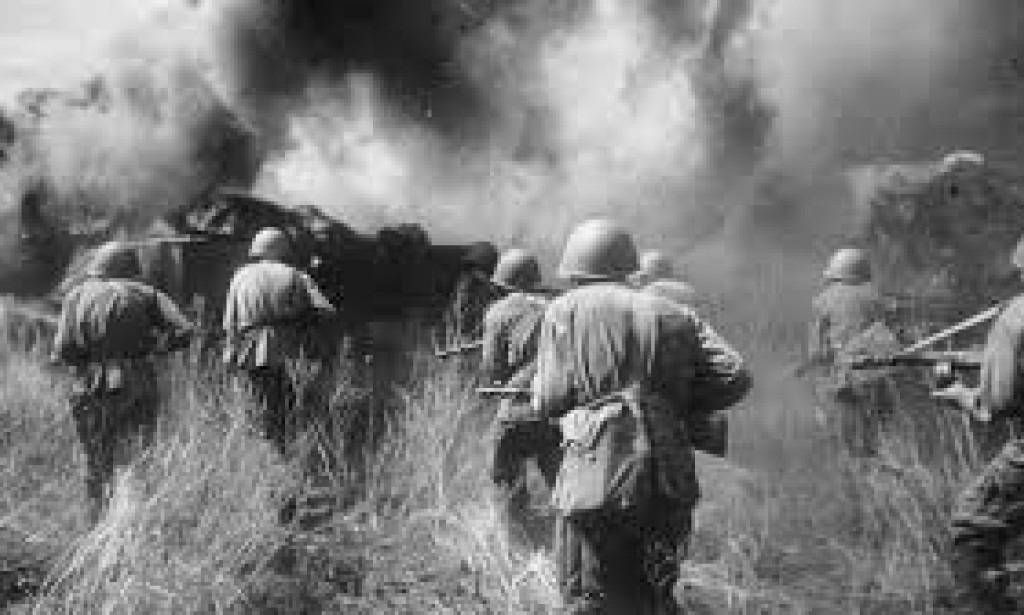The Second World War, also known as World War II, was a global conflict that lasted from 1939 to 1945. It involved many of the world's nations, including all of the major powers, which were eventually divided into two opposing alliances: the Allies and the Axis.
The war began on September 1, 1939, when Germany, led by Adolf Hitler and the Nazi Party, invaded Poland. This prompted Britain and France to declare war on Germany. Over the next few years, Germany rapidly expanded its territorial conquests, taking control of several European countries, including France, Belgium, the Netherlands, and Norway. Italy, under the leadership of Benito Mussolini, joined the war in 1940 as an ally of Germany.
In 1941, Germany broke the non-aggression pact with the Soviet Union and launched a massive invasion, aiming to acquire vital resources and eliminate communism. However, the Soviet Union, led by Joseph Stalin, put up fierce resistance and eventually turned the tide of the war on the Eastern Front.
Meanwhile, Japan, seeking to expand its territory in Asia, launched a surprise attack on the United States' naval base at Pearl Harbor on December 7, 1941. This brought the United States into the war against the Axis powers, aligning itself with the Allies.
The war witnessed major battles and campaigns across the globe. In Europe, pivotal events included the Battle of Stalingrad (1942-1943), where the Soviet Union halted the German advance, and the D-Day landings (June 6, 1944), where the Allies, led by the U.S., Britain, and Canada, launched a massive amphibious invasion of German-occupied France.
In the Pacific theater, the United States, along with its allies, fought a series of island-hopping campaigns to push back Japan's advance. Key battles included the Battle of Midway (1942), where the U.S. Navy inflicted a major defeat on the Japanese fleet, and the Battle of Okinawa (1945), which was a significant stepping stone for the planned invasion of mainland Japan.
During the war, Nazi Germany implemented a policy of genocide, known as the Holocaust, resulting in the systematic persecution and mass murder of millions of Jews, along with other minority groups. This remains one of the darkest chapters in human history.
The war finally ended in 1945 with the defeat of Germany and Japan. In April, Soviet forces captured Berlin, and Hitler committed suicide. On May 7, Germany surrendered. Meanwhile, in the Pacific, the U.S. dropped atomic bombs on the Japanese cities of Hiroshima and Nagasaki in August, leading to Japan's surrender on September 2, 1945.
The Second World War had a profound impact on the world, causing significant loss of life, destruction, and displacement, with estimates of around 70-85 million casualties.


You must be logged in to post a comment.